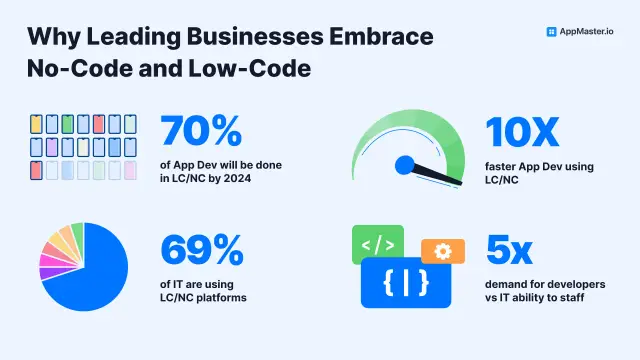Marketing Automation: Examples & Tools
Discover top marketing automation examples and tools to streamline campaigns and drive growth. Maximize your ROI with our expert insights.

In today's fast-paced business landscape, companies constantly seek ways to optimize their marketing efforts and drive growth. Marketing automation has emerged as a powerful tool to help streamline and automate various marketing tasks, from lead generation to customer retention.
In this article, we will explore the world of marketing automation and provide examples and tools to help you automate your campaigns and maximize your ROI. We'll dive into the various features and benefits of marketing automation platforms and share expert insights on effectively implementing them into your marketing strategy.
Whether you're new to marketing automation or looking to upgrade your current approach, this article will provide the knowledge and resources to take your marketing to the next level. So, let's get started and explore the exciting world of marketing automation!
What Is marketing automation?
Marketing automation is an advanced, technology-driven approach that focuses on streamlining, automating, and measuring a wide array of marketing tasks and workflows to enhance overall efficiency and boost revenue. By automating repetitive and time-consuming tasks such as email campaigns, social media scheduling, lead scoring, segmentation, and lead nurturing, businesses can effectively target potential customers with personalized and highly relevant content, significantly increasing the chances of converting them into loyal customers.
Marketers can create intricate, multi-touch campaigns that adapt to user behavior and preferences in real-time by leveraging robust marketing automation platforms, such as HubSpot, Marketo, Salesforce Pardot, and ActiveCampaign. This results in a highly targeted and customized customer experience, which fosters deeper engagement and higher conversion rates. These platforms typically offer a comprehensive suite of features, including lead generation, customer relationship management ( CRM) integration, detailed analytics, and even artificial intelligence ( AI) capabilities to optimize campaigns and predict customer behavior.
According to a study by EmailMonday, companies that employ marketing automation have experienced a notable 14.5% increase in sales productivity and a 12.2% reduction in marketing overhead. Additionally, a report by Invesp revealed that businesses using marketing automation witnessed a staggering 451% increase in qualified leads. These statistics demonstrate the transformative potential of marketing automation in enhancing lead generation and nurturing while reducing manual effort and operational costs.
Marketing automation is a powerful tool that enables organizations to optimize their marketing efforts, save valuable time, and ultimately drive better results. Businesses can foster stronger connections with prospects by automating various marketing tasks and workflows, accelerate the sales pipeline, and achieve long-term growth and success.
What does marketing automation do?

Marketing automation performs several key functions that help businesses streamline their marketing efforts, increase efficiency, and achieve better results. These functions include:
-
Automating repetitive tasks: Marketing automation takes care of routine tasks such as sending email campaigns, scheduling social media posts, and managing ad placements, freeing marketers to focus on strategic and creative aspects of their work.
-
Lead generation and nurturing: Marketing automation platforms facilitate lead generation by capturing and segmenting leads from various channels. They also enable businesses to nurture leads through personalized, targeted content and communications based on user behavior, preferences, and demographics.
-
Lead scoring and qualification: Marketing automation assigns scores to leads based on their engagement and likelihood of conversion, allowing businesses to prioritize and focus on the most promising prospects.
-
Customer segmentation: Marketing automation tools help segment customers based on their behavior, preferences, and other attributes, enabling businesses to deliver more targeted and relevant messages to different audience groups.
-
Campaign management and optimization: Marketing automation platforms provide marketers with the tools to create, execute, and analyze complex, multi-channel campaigns. They also offer real-time performance data, enabling ongoing optimization and improvement of campaigns to achieve better results.
-
CRM integration: Marketing automation systems can be integrated with customer relationship management ( CRM) tools, allowing businesses to maintain a single source of truth for customer data and ensuring that marketing and sales teams are aligned in their efforts.
-
Analytics and reporting: Marketing automation platforms offer robust analytics and reporting features, enabling businesses to track and measure the performance of marketing campaigns, identify trends, and gain insights into customer behavior.
-
Personalization and dynamic content: Marketing automation allows for creating and delivering personalized content based on user data, resulting in a more engaging and tailored customer experience.
By performing these functions, marketing automation helps businesses optimize their marketing strategies, improve lead generation and conversion rates, and ultimately boost revenue.
How does marketing automation work?
Marketing automation functions as a technological solution to streamline and automate marketing tasks, enabling marketers to efficiently manage various aspects of their campaigns without manually performing repetitive tasks. Marketing automation gathers user data from multiple sources, such as website interactions, social media, and email engagements. This data is stored centrally, often in a CRM system, and serves as the foundation for subsequent actions.
With the collected data, marketing automation platforms can segment leads and customers, allowing marketers to target them with tailored content and messages. The system also employs this data to create personalized user experiences, such as customized email content and website recommendations. As a result, users receive more relevant and engaging content, which increases the likelihood of conversions.
When creating campaigns, marketing automation platforms enable marketers to design and execute sophisticated, multi-channel strategies that may involve email marketing, social media posting, and other digital marketing initiatives. These campaigns are managed and automated through the platform, saving time and effort. In addition, marketing automation nurtures leads by sending them pertinent content based on their preferences and behavior while also scoring leads to help marketers focus on those with the highest conversion potential.
Performance tracking and measurement are crucial components of marketing automation. Platforms provide real-time data and insights, allowing marketers to make data-driven decisions to optimize their campaigns. Furthermore, marketing automation platforms can be integrated with other tools and systems, such as sales automation and analytics software, to ensure seamless data flow and alignment between marketing, sales, and customer service efforts.
In essence, marketing automation simplifies and optimizes marketing processes by eliminating manual, repetitive tasks and using data to deliver personalized experiences. This increases efficiency and improves lead generation, conversion rates, and revenue growth for businesses.
Best tool for marketing automation
There is no one-size-fits-all answer to the best marketing automation tool, as the right choice depends on factors such as your business size, industry, budget, and specific marketing needs. However, several highly-regarded marketing automation platforms are popular among marketers:
-
HubSpot: HubSpot is a comprehensive inbound marketing, sales, and CRM platform that offers an array of features, including email marketing, lead nurturing, analytics, and social media management. HubSpot is known for its user-friendly interface and extensive support resources, making it an excellent choice for small to medium-sized businesses.
-
Marketo: Marketo, now part of Adobe Experience Cloud, is a powerful and scalable marketing automation solution suitable for medium to large-sized businesses. It provides advanced features such as lead scoring, multi-channel campaign management, and advanced analytics, making it a strong choice for organizations with complex marketing needs.
-
Salesforce Pardot: Pardot is a marketing automation platform specifically designed for B2B organizations. As part of the Salesforce ecosystem, it offers seamless integration with Salesforce CRM, making it an ideal choice for businesses already using Salesforce or those looking for a robust B2B marketing solution.
-
ActiveCampaign: ActiveCampaign is an affordable marketing automation platform with a focus on email marketing, CRM, and sales automation. It offers advanced features like automation workflows, leads scoring, and dynamic content, making it a suitable choice for small to medium-sized businesses looking for a cost-effective solution.
-
Mailchimp: Mailchimp is a popular email marketing platform that has expanded its features to include marketing automation. It's an excellent option for small businesses or startups looking for an easy-to-use solution with basic automation capabilities.
To determine the best marketing automation tool for your business, consider factors such as your budget, company size, marketing objectives, and the level of support and customization you require. Additionally, take advantage of free trials and demos to test the platform's usability and features before committing to a specific solution.
How to create a custom marketing automation solution
Creating a custom marketing automation solution requires a combination of software development expertise, a deep understanding of marketing processes, and a clear vision of the desired outcome. To begin with, a thorough analysis of your organization's unique marketing needs and objectives is essential. This will help identify the required features and functionalities, such as lead generation, segmentation, email marketing, social media management, analytics, and CRM integration.
Next, design a system architecture accommodating scalability, flexibility, and seamless integration with existing tools and software. To build a robust and secure solution, utilize appropriate technology stacks, such as programming languages, databases, and frameworks. For instance, Python, Golang, or Node.js can be suitable choices for backend development, while React or Vue.js may be utilized for frontend development.
Develop user-friendly interfaces and dashboards to make the custom solution accessible to non-technical users, ensuring that marketers can easily navigate and manage their campaigns. Incorporate machine learning and artificial intelligence algorithms to enable advanced personalization, dynamic content generation as GPT-4, and predictive analytics, empowering marketers to make data-driven decisions and deliver highly targeted customer experiences.
Additionally, ensure the custom marketing automation solution complies with data privacy regulations like GDPR and CCPA, implementing strict security measures to protect sensitive user data. Finally, establish a meaningful testing and quality assurance process to identify and fix any issues, ensuring the solution performs optimally and meets the organization's marketing objectives. By following these steps, businesses can develop a custom marketing automation solution tailored to their specific needs, providing a competitive edge and the ability to optimize marketing efforts for better results.
How no-code can help
No-code platforms, such as AppMaster.io, can significantly contribute to marketing automation by streamlining the software development process and enabling businesses to create custom applications without extensive coding expertise. These platforms leverage artificial intelligence to generate source code for web, server (backend), and native mobile apps, empowering non-technical users to create tailored marketing automation solutions.
By automating the development process, no-code platforms reduce time to market, the total cost of ownership, and iteration costs, making it more efficient and cost-effective for businesses to create and implement marketing automation systems. This addresses challenges such as high developer salaries, difficulties in finding qualified professionals, and staff turnover.

Furthermore, no-code platforms enable rapid modifications to market automation applications, minimizing the costs and risks associated with traditional development processes. They automatically adjust business processes and UI elements in response to changes, saving time and resources while minimizing manual intervention.
No-code platforms like AppMaster.io also ensure that generated marketing automation applications are free of technical debt, resulting in optimal performance and efficiency. These platforms excel in updating applications, allowing users to easily regenerate their software with improved algorithms, new library versions, and the latest programming languages. No-code platforms provide businesses with a powerful solution to develop and maintain high-quality, custom marketing automation applications more efficiently and cost-effectively than traditional development processes.
Conclusion
In conclusion, no-code platforms, such as AppMaster.io, have revolutionized the software development landscape, making it more accessible and efficient for businesses to create custom applications, including marketing automation solutions. By eliminating traditional barriers to entry, such as high developer costs and technical expertise, these platforms empower businesses to create and maintain high-quality applications without breaking the bank. Their ability to automatically adjust to changes, minimize technical debt, and easily update applications ensures optimal performance and efficiency throughout the software lifecycle. Embracing no-code platforms paves the way for businesses to unleash their full potential, driving innovation and growth while staying ahead in an increasingly competitive digital landscape.
FAQ
What is marketing automation?
Marketing automation refers to the use of software and technology to streamline, automate, and measure marketing tasks and workflows, making them more efficient and effective. It enables marketers to target customers with personalized and relevant content across various channels, such as email, social media, and websites, to increase sales and improve customer engagement.
Why is marketing automation important?
Marketing automation offers numerous benefits, including increased efficiency, improved customer targeting, personalized communication, enhanced lead nurturing, better analytics, and ROI measurement. It allows marketing teams to manage multiple campaigns and channels more effectively, freeing up time for strategic planning and creative tasks.
What are some common marketing automation features?
Some common marketing automation features include:
-
Email marketing
-
Lead scoring and management
-
Social media management
-
Landing page creation
-
CRM integration
-
Analytics and reporting
-
A/B testing
-
Campaign management
How does marketing automation work with CRM?
Marketing automation and CRM (Customer Relationship Management) systems work together to manage and analyze customer interactions throughout the entire customer lifecycle. While CRM focuses on organizing and managing customer data, marketing automation uses this data to create targeted and personalized marketing campaigns. Integrating both systems allows for a more holistic view of customer information and helps marketers nurture leads and drive sales more effectively.
What types of businesses can benefit from marketing automation?
Businesses of all sizes and industries can benefit from marketing automation, especially those with a strong online presence or an extensive customer database. Marketing automation is particularly helpful for businesses with limited marketing resources or those seeking to improve their marketing efficiency and effectiveness.
How much does marketing automation cost?
The cost of marketing automation varies depending on the platform, features, and size of your business. Some providers offer tiered pricing based on the number of contacts or users, while others charge a flat monthly fee. Many platforms also offer free trials or freemium plans for smaller businesses with basic needs.
How can I choose the right marketing automation platform for my business?
To choose the right marketing automation platform, consider factors such as your business size, industry, budget, and specific marketing needs. Research different platforms and compare their features, pricing, and integration capabilities. It's also a good idea to read reviews and testimonials from other businesses to gauge the platform's effectiveness and customer support.
Can I integrate marketing automation with other tools and platforms?
Yes, most marketing automation platforms offer integration with a wide range of third-party tools and platforms, such as CRM systems, email service providers, social media platforms, and e-commerce platforms. Integrating these tools can help streamline your marketing processes and provide a more comprehensive view of your marketing performance.
Is marketing automation the same as email marketing?
While email marketing is a key component of marketing automation, they are not the same thing. Marketing automation encompasses a broader range of tasks and channels, including social media, landing pages, and lead management. Email marketing is just one aspect of a marketing automation strategy.
How can I measure the success of my marketing automation efforts?
Success in marketing automation can be measured using various metrics, including email open and click-through rates, conversion rates, lead generation, customer engagement, and ROI. It's essential to establish clear goals and KPIs (Key Performance Indicators) for your marketing automation efforts to track progress and optimize your campaigns accordingly.





